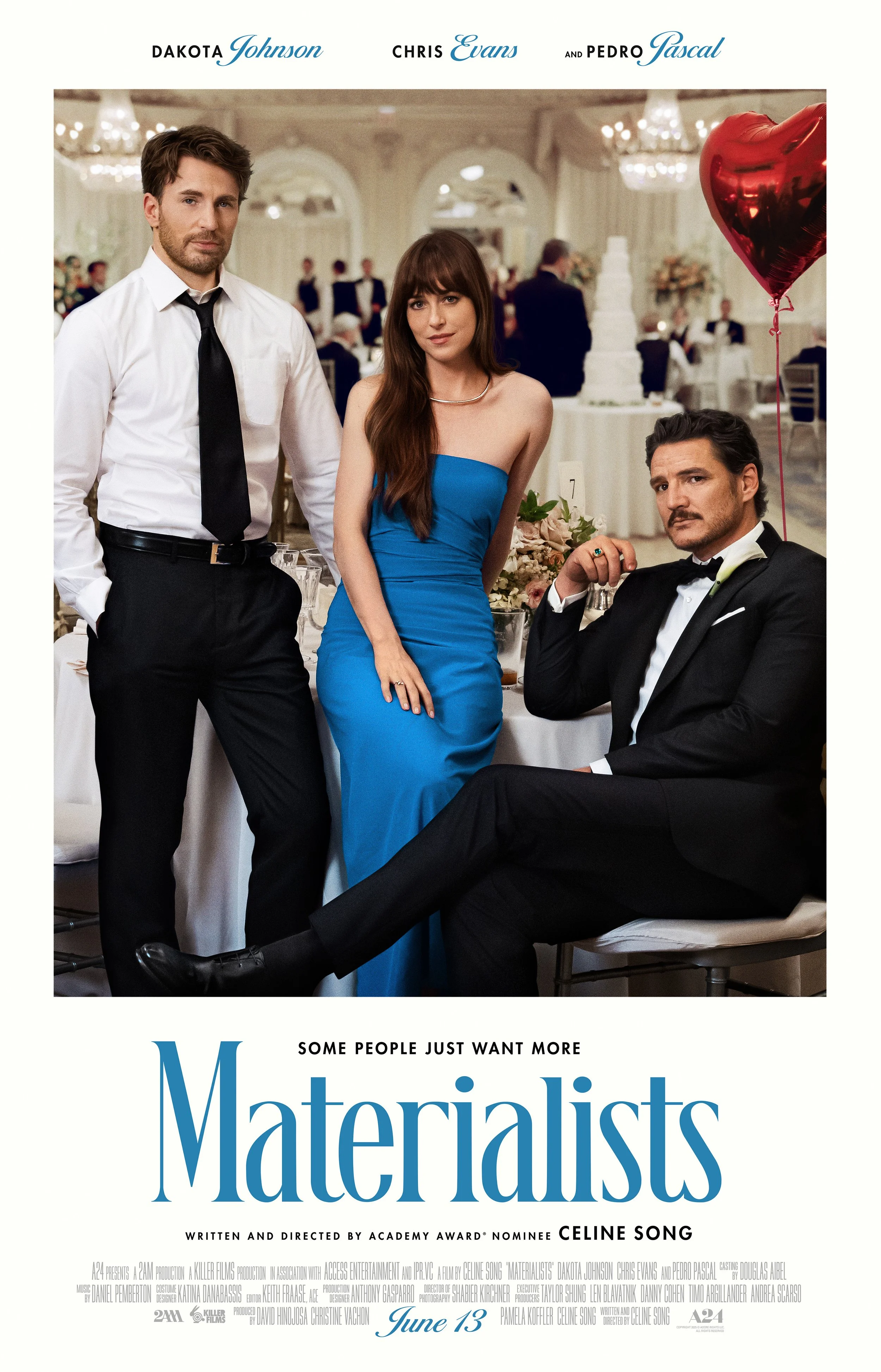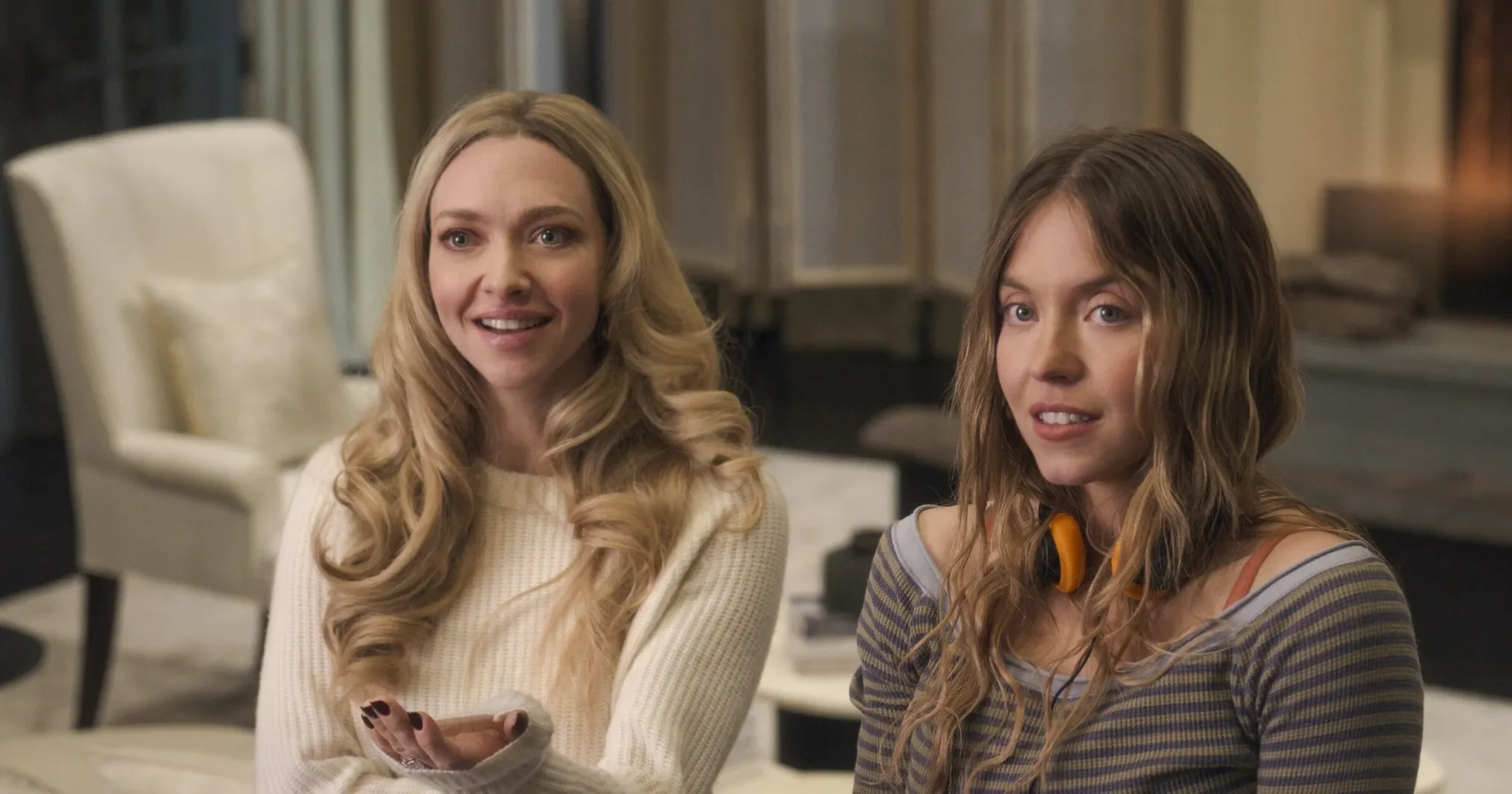‘Materialists’ REVIEW: Reminding Gen Z What Love Looks Like
‘Materialists’ REVIEW: Reminding Gen Z What Love Looks Like
Dakota Johnson and Chris Evans in Materialists | Still courtesy of Columbia Pictures Philippines / A24
You know we live in a screwed-up world when we think a fictional character choosing the rich person is the more realistic and empowering decision and that choosing someone broke, no matter the intangibles, is mere “propaganda.”
I’ve thought about this topic for quite some time, and I always come back to this conclusion: my generation, Gen Z, are becoming the new “Baby Boomers” of this incredulous and politically charged era. (Bear with me, I know this is a Materialists review but there is a point coming here).
Gen Z is skipping over their parents' generation when it comes to life goals — their attitudes toward marriage, family, homeownership, and suburban living mirror those of their grandparents' generation more than millennials or Gen X. A University of Tennessee professor shared that: “Gen Z seems less enthralled with capturing and documenting experiences and more looking to reestablish the sources of community and wealth that Baby Boomers took comfort in years ago.”
In other words, when it comes to love and romance, my generation would prefer to use it as a stepping stone towards wealth, stability, and garnering more scarce resources. This is also exemplified in the latest U.S. elections as a huge swath of Gen Z teenagers shifted towards voting for a conservative candidate that supposedly promises to put money back into people’s wallets.
Celine Song is a Millennial, and while I can’t make any assumptions about her thoughts about generational differences, I can make inferences based on how she treats Materialists. Because Materialists is not a Gen Z film; it doesn’t promote an escape from problems like rent increases, tariffs, and eggs being expensive; it treats love as a separate entity. It’s not a business deal, a long-term investment, or a marketplace — it’s a glitch in the system, a glitch that we’ve forgotten to embrace.
Materialists official poster | Still courtesy of Columbia Pictures Philippines / A24
Dakota Johnson plays Lucy, a robotic, metrics-driven matchmaker. She has a list of New York singles she keeps on her client list and, based on factors such as height, salary, and family background, matches those who she deems most compatible with one another. Her job is no different than a hedge fund manager handling financial securities. For a hefty commission fee, Lucy will gladly help you beat the dating market and minimize your losses way more than if you were on your own. Love as a concept to be commodified is the status quo; it’s cynical and cold, but so much of the world — and this generation in particular — reflects that kind of thinking.
Conflict arrives in the form of two handsome leading men: Pedro Pascal and Chris Evans. The former is rich, the latter is broke. It’s a corrosively simple love triangle that harkens back to your Crossing Delancey’s and Sweet Home Alabama’s. The promise of the film lies not in who will win (though that remains narratively enticing), it is: what worldview will the film take? Does it hold a grudge on love? Is it hopelessly romantic? Or will it be bitter about men? Will it take the independent woman route?
So much of discourse nowadays is all about answering the question of which political, social, or cultural thinking will this script align with? In a way, the film can be interpreted as a microcosm of that annoying type of discourse. Based on my preferences for height, weight, age, and political alignment, what man would be beside suited for me? Oh he’s a “fattie”? Swipe left. If love is all about seeking alignments, then why don’t we just treat it like analyzing the stock market? Why don’t we just treat finding our significant other the same way we find the right insurance agent?
The difference is that people aren’t perfect. They aren’t neatly packaged assets which you can pick and choose like numbers on a screen. If a guy is 5’9, then a guy is 5’9, not 5’11, not 6’2. If a girl is 39 years of age, then she’s 39, not 31. “This is not a car or a house. People are people are people,” Lucy tells one of her clients. Therefore it’s an interesting angle that we see Lucy constantly struggle with this line of work, in fact, one of my complaints about this movie is that we never really see her succeed at least once in the job. The one time we do see a successful wedding, it almost gets undermined by a beautifully acted confessional about marriage and feeling valuable from actress Louisa Jacobson.
Celine Song shooting a scene with Johnson and Evans | Still courtesy of Columbia Pictures Philippines / A24
Pascal’s character says: “A body is like an apartment,” and hence invests in it and reaps what he deems as “life-changing” rewards such as women noticing him in airports and restaurants. Evans’ past relationship with Dakota Johnson deteriorated because he preemptively feels that he cannot measure up to the investment Johnson wants him to make. He can only offer cheap restaurants and a ride home in a shitty car. It gets the job done, but why isn’t it enough?
At one point, Song’s script makes Lucy say: “Dating is hard, love is easy.” Maybe the reason Lucy never succeeds in matchmaking is that it is inherently a contradiction. Attempting to do math or to game theory your way out of a glitch in the system is insurmountable. The fact that society has coalesced around the idea that bringing someone to an expensive sushi restaurant means a person has invested in you more, and thus, loves you more than if they had just bought you a hotdog from a hotdog stand is an example of how the system has won.
Capitalism has perverted dating into a zero-sum game, and that’s why it’s become hell. Just like how homeownership slips further and further out of reach, or how escaping wage slavery seems impossible — those same extractive forces have captured romance, replicating the same crushing dynamics. And in what might be one of the biggest mistakes of my generation: we’ve conflated dating with love.
In what turns out to be a controversial left turn for many, Song exemplifies this conflation in a date gone horribly wrong for one of Lucy’s clients, which makes Lucy feel responsible and makes her finally reflect on how corrupting her job can be. This is where the “romantic comedy” genre A24 seems to have been pushing for completely runs out the front door. I talked to a marketing associate after the film who mentioned that part of their job was interviewing real-life matchmakers to figure out what they thought about the film as part of their focus group discussions.
Plenty of them mentioned that what happens in the film is accurate and a daily occurrence for many in the industry (which makes sense since Song did work in it), while some obviously are also appalled by the film’s downright villainization of the practice. I personally think that the film does not truly stake a claim on either camp, but, rather, shows the most dire extreme of Lucy’s robotic calculations for better or worse. You cannot cancel out people’s worst traits with the supposedly “good” traits they portray in dating like height, salary, and looks, in fact, the bad characteristics are usually buried in such a setup.
Dakota Johnson and Pedro Pascal on a date | Still courtesy of Columbia Pictures Philippines / A24
All of this is to say that while the film navigates murky waters about dating and love, I personally resonated with the ideas that it concocts in such a broadly appealing manner. I’m a hopeless romantic, I believe that love should be the easiest thing in the world. When it clicks, everything else should fall into place seamlessly.
Celine Song craves love in its rawest form, untouched by everything else we've systematized and commodified. That's an extraordinary thing to ask, but it's probably because we've become so fundamentally wired by neoliberal frameworks in the 21st century that treating love as something separate feels like discarding the tools we need to survive.
But love is supposed to be what sustains us — it is what makes us survive. Materialists doesn't break new ground, but it's a necessary reminder of what we're allowing the system to extract from us: our ability to measure love by how it feels, not by what it costs.
‘Materialists’ is now showing in Philippine cinemas.













